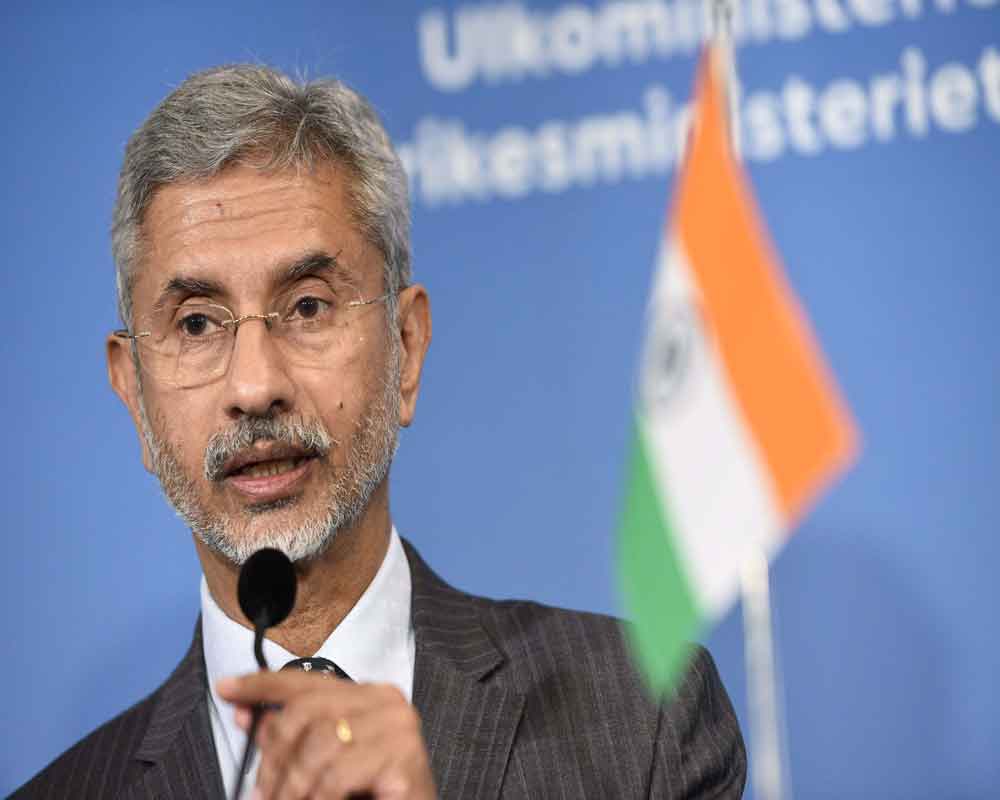External Affairs Minister S Jaishankar has described as "constitutionally proper" the revocation of Article 370 to withdraw the special status of Jammu and Kashmir and said the previous provision was "exploited" by Pakistan to conduct cross-border terrorism.
Writing in the UK's 'Financial Times' newspaper on Tuesday, the minister sought to counter criticism over Prime Minister Narendra Modi-led government's announcement over the "anachronistic provision" last month, which he said had resulted in socio-economic injustice due to the inability to apply national laws in Jammu and Kashmir.
"The earlier provision created a cosy arrangement of local ownerships that served the state's political elite well. But it denied economic opportunities and social gains for the masses. The resulting separatist sentiments in some quarters were then exploited by neighbouring Pakistan to conduct cross-border terrorism," he wrote.
"Parliament's changes to Jammu and Kashmir's status are constitutionally proper and received support beyond the ruling Bharatiya Janata party and its allies as it was passed by a two-thirds majority. It reflects a larger consensus on the need for drastic reform," he noted.
The article went on the lay out the context of the Modi government's move and claims that although the central government spent 10 times more on the average resident of Jammu and Kashmir than in the rest of the country, that investment did not show up on the ground.
Infrastructure projects slowed down amid concerns about irregularities in public finance. Recent reports of corruption in banking and recruitment underlined this situation, with residents having to seek education, medical access and employment in other provinces.
"The inability to apply national laws has led to the denial of socio-economic justice. State laws did not give women equal rights on property and prevented child protection programmes. They rejected affirmative action that was practised in the rest of India," Jaishankar said.
"Domestic violence laws, female representation in local bodies and the right to education were all kept at bay. Discrimination against refugees was open," he added.
"A provision intended to provide temporary comfort to the process of aligning with the rest of the nation was misused for many years. By doing so, it encouraged links between separatist politicians and terrorist groups sponsored by Pakistan. As minorities were driven out of the state in their thousands, this polarised environment was exploited politically."
The external affairs minister highlighted the loss of thousands of lives due to terrorist attacks over the past decades in the region and said the move by the government was a difficult choice between continuing with the old policy or pursuing "progress and modernity by changing the region's legal status".
The government has chosen the bolder and better option which should be applauded, not criticised," he said.
The legislative changes have not altered India's external boundaries or the 'Line of Control' that delineates the territory under the control of India and Pakistan. The changes are entirely domestic, he added.
"As they make a positive impact on the lives of the people, the justification for cross-border terrorism will become even more untenable. The boundaries of Indian states have been reorganised 14 times since independence. What has now happened in respect to Jammu and Kashmir is the norm, not an aberration," he added.
He detailed Prime Minister Modi's efforts at addressing the wider social, economic and political challenges in order to advance India, including gender discrimination, climate change and river pollution and the spread digital access, improve skills, boost start-ups, manufacturing, generate jobs and embrace technology.
"His policy towards Jammu and Kashmir is fully in consonance with his vision of a new and modern India. India is a democratic society with robust parliamentary practices. This is a well-intended change designed to improve daily lives and create more opportunities," he wrote.
"There is a new reality in the making in Jammu and Kashmir. It is driven by economic development, social progress and gender justice. Its future is based on freedom from intimidation and fear of terrorists. Those who identify with these goals will surely welcome the change," he added.


























